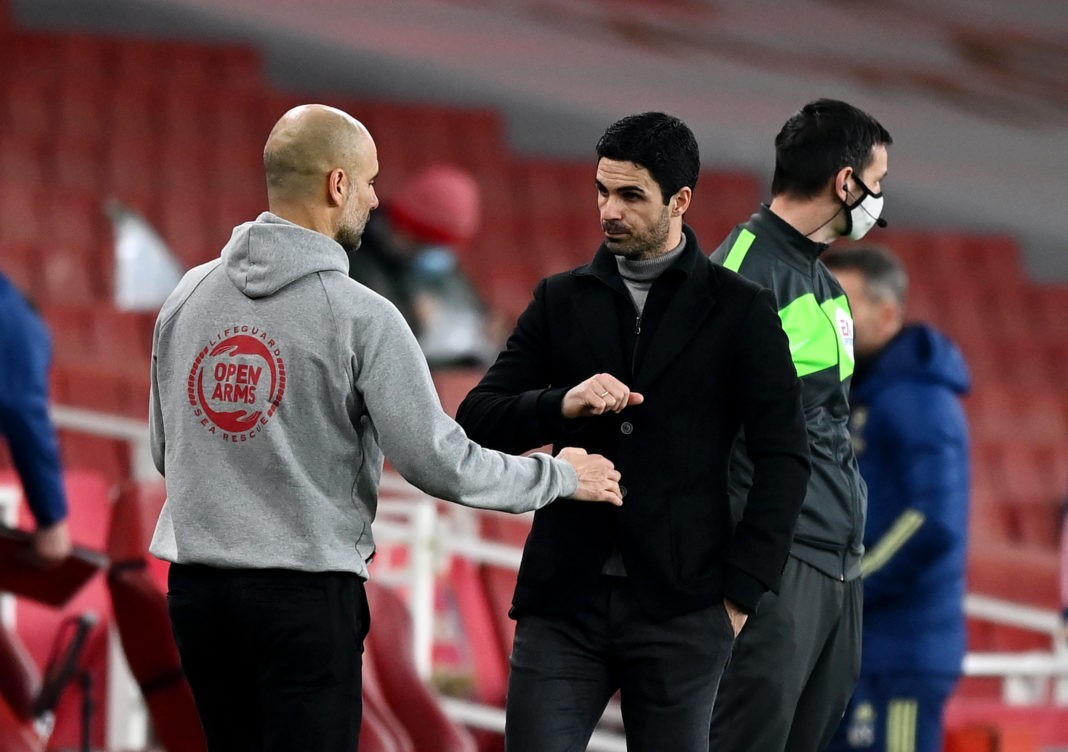Despite what he says, Mikel Arteta’s default style seems to be evolving as a cautious one, more afraid of losing than anything else and that’s what’s hurting Arsenal.
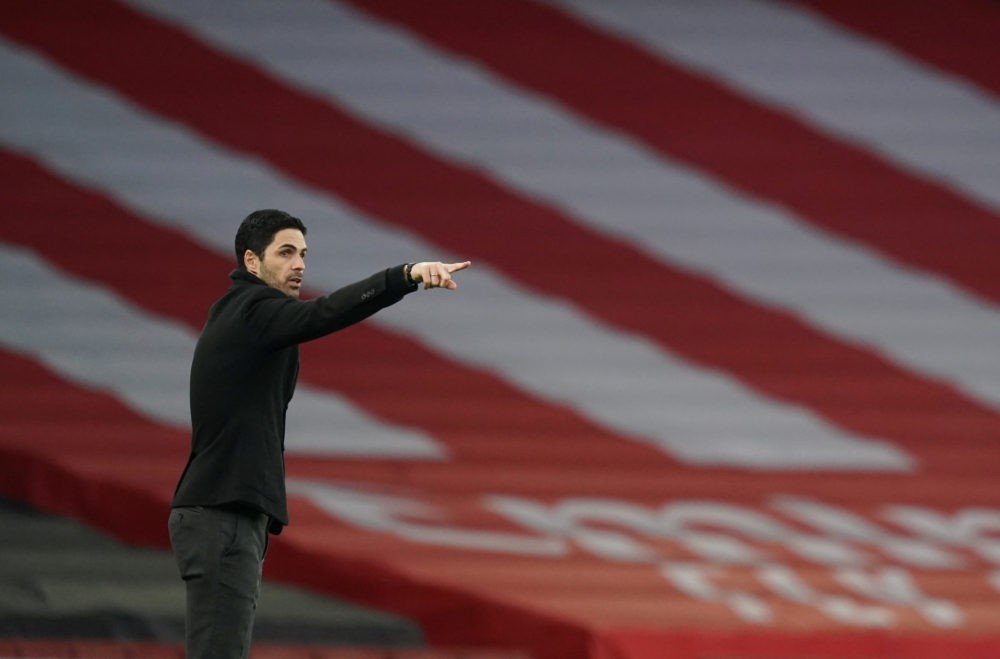
Against Manchester City there was nothing to lose. Arsenal fans expected a pasting, a win was highly unlikely and there seemed to be nothing to be gained from losing 1-0 meekly instead of losing 3 or 4-0 while having a real go.
Even Sky Sports seemed perplexed as to what Arsenal were afraid of.
On the sidelines, Mikel Arteta was exasperated as another pass went sideways and many spoke about how it isn’t his fault the players were scared on the pitch but that’s wrong.
Totally and absolutely wrong because it all comes from him.
As it stands, Arsenal need nine wins and two draws from their last 13 Premier League games to match Arsene Wenger’s worst ever season in charge of the club.
As Arsenal sunk to yet another defeat, this time at Everton, I thought I’d worked out why Arsenal are rubbish. Another defeat against Manchester City followed but then Arsenal came out flying against Chelsea and things seemed to turn on a sixpence.
There was hope again. Yes! This was the football we wanted, this was what Arteta promised.
The Chelsea game was followed by wins against Brighton, West Brom, Newcastle before a draw at Palace and another win against Newcastle.
But since that 3-0 win against the Magpies, Arsenal have won just eight of their 19 games games, losing five and drawing six. The side, once again, look like the team so devoid of belief in themselves we remember why we spent part of this season talking about relegation without any sense we were being hyperbolic.
The problem also seems to be the same.
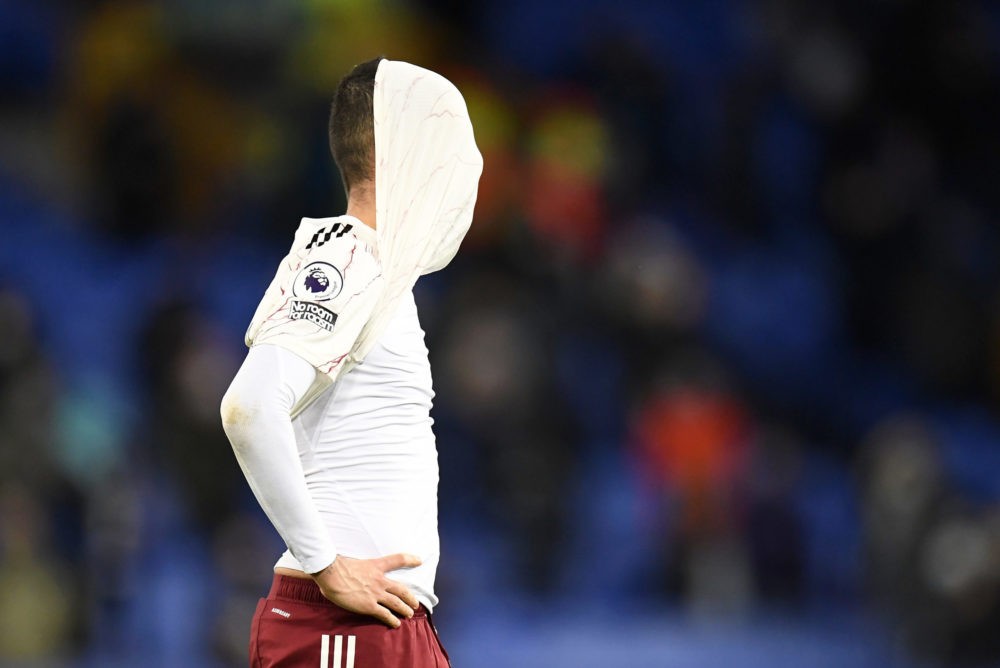
As I watched Arsenal stink up the Emirates against Slavia Prague, I thought to myself ‘these are professional footballers, how can they be so completely awful at every aspect of scoring a goal?’
I mean, how is it possible that players who know how to do that suddenly stop?
That’s when I remembered about implicit and explicit memory and the more I thought about it, the more I realised that’s what the problem is. Well, a big part of it at least.
Mikel Arteta is known for his meticulous preparation, but, as we’ve all witnessed this season, he barks orders from the sidelines at a ridiculous rate, and in a number of different languages.
Contrast that to the free-flowing, albeit defensively-lapse football of Arsene Wenger, a manager famed for trusting his players, giving few instructions and spending most of the game sitting on the bench.
In the middle ground, lies the perfect manager.
Arteta is overloading his players with far too much new information and instruction and that is why they are, collectively, awful. I mean, it’s not like most of them were blessed with super brains to begin with.
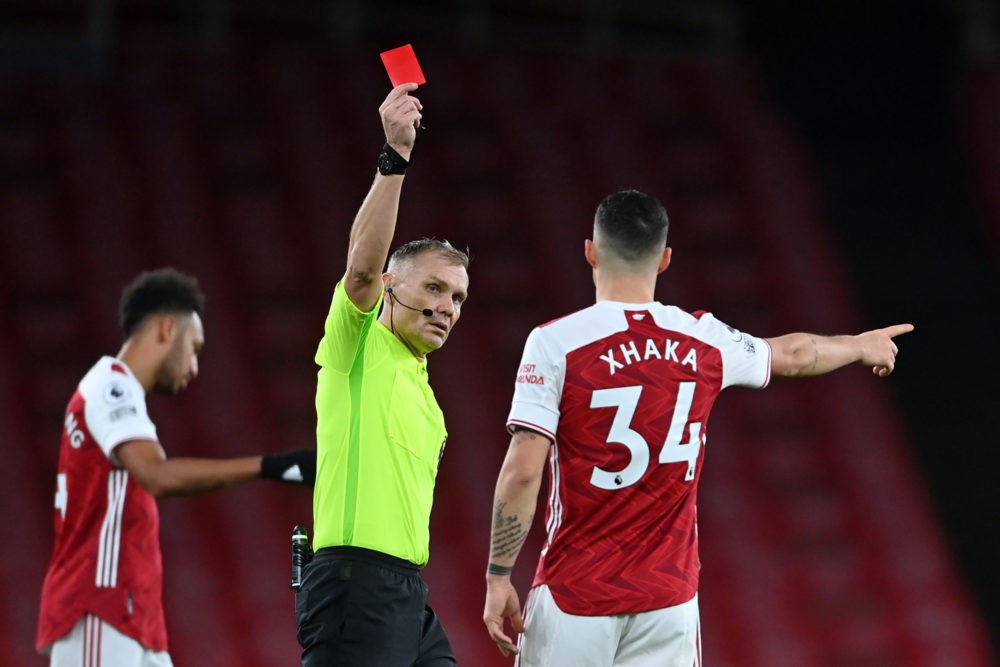
Instead of reacting instinctively, the players are trying to react in the manner Arteta dictates. Think what it’s like when you learn any new task. You are slower and more deliberate than when you have been doing the same thing regularly for years.
It’s the same here. They have to actually think about what they’re going to do. That causes a split second delay in the actual doing. At the top level, that’s the difference between the top five and the bottom.
I spoke about this before when talking about Theo Walcott and Nicolas Pepe.
Sports people are at their best when they are playing from an implicit level. It’s what we mean when we talk about it being natural for them. There is no effort. Their movements are fluid and the split-second advantage that comes from an implicit action versus a thought-out explicit one is the difference between champion and loser.
As Arteta tries to drill into the team in his extensive methods and tactics, he’s stopping them from playing implicitly, returning them to the state of almost near beginner as they run through in their head all the steps they would usually play out instinctively. They get more in their own head, coaching themselves, commanding themselves, berating themselves.
They are not fluid anymore but jittery.
Their game doesn’t flow, it falters.
What can be done about Arsenal being rubbish?
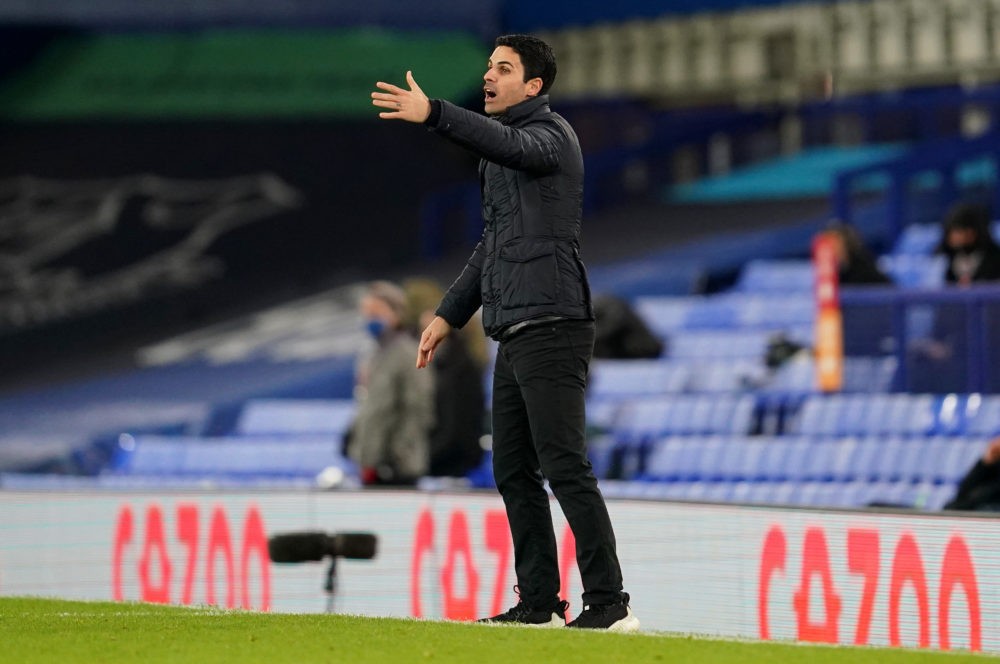
The most common answer to the question ‘how do you fix Arsenal?’ is ‘buy better players’ and that would certainly help. As we know, however, we don’t have that much money so it’s highly likely the majority of players who got us into this mess will need to get us out of it, too.
The quickest way to fix this mess, or at least make a significant dent in it, is for Arteta to relax a little in what he is demanding from the team. Not in terms of effort or commitment or anything like that.
He needs to show them more trust.
If you’ve ever spent a significant time with anyone who criticises everything you do, you’ll know how it saps your confidence. I’m not saying that’s what Arteta is doing, but the players are certainly playing like they’re afraid to make a mistake.
So, in addition to trying to learn they’re also full of fear.
Those are the perfect ingredients for the sh*tshow we’ve been watching this season, and it explains why things have got worse under Arteta rather than better, as they should.
This needs a softer approach, not a firmer one.
Arteta is not a bad manager, inexperienced as he is, he’s just too anal.
Arteta needs to smile, have a little fun, remind the players – and himself – why they all love this game.
Unfortunately, if no-one can get through to him, human history tells us he will simply try to do more of the thing that isn’t working, losing himself in a tailspin that will be irretrievable.
As it stands, Arsenal needed seven wins from their last eight Premier League games to match Arsene Wenger’s worst ever full season in charge of the club.
Nothing changes if nothing changes.
The Art of Failure, by Malcolm Gladwell, has more on this.

